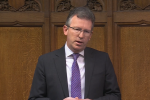The report of the House of Commons Committee of Privileges into the question of whether Boris Johnson misled Parliament is an extensive and carefully considered piece of work.
I do not agree with all of its conclusions and I fear the Committee has allowed an understandable irritation with the way Boris Johnson has approached their inquiry, particularly after its conclusions were made known to him, to affect the tone of their report. There is sometimes a conflation of what he knew, or should have known, at the time he gave evidence to the Committee on the one hand, with what he knew at the time of the contentious statements to Parliament (the time relevant to their inquiry) on the other. There have also been flirtations with the concept of recklessly misleading Parliament, a novel concept that seems to have been introduced during the Committee’s inquiry, although of course the Committee’s final conclusions are that the House of Commons was deliberately misled – a clear existing standard.
However, much of the Committee’s report is in my judgment persuasive in demonstrating that the former Prime Minister’s conduct fell well below the standard expected of him in providing the leadership necessary to ensure that rules set by the Government were complied with at the heart of Government, at a time when everyone in the country was being expected, and urged by the Prime Minister, to do so.
That was the conclusion I reached before Boris Johnson resigned as Prime Minister and which I set out in detail here: https://www.jeremywright.org.uk/news/prime-minister-may-2022. That is why I called for his resignation then. What the Privileges Committee have underlined is a cavalier approach to the accuracy of his public statements which is simply inconsistent with the proper exercise of the office of Prime Minister at any time, let alone in a period of significant threat to the health of the nation where precise and reliable Government communications mattered more than ever.
The Committee were also right to condemn, and to sanction, Boris Johnson’s behaviour after they had notified him of the conclusions they had reached in his case.
It is worth remembering that the Committee were given the task of investigating these events by the House of Commons as a whole and no member of the House, including Boris Johnson himself at the time, voted against the proposal that they should do so. The fairness of the process they adopted has been endorsed by a very senior judge, and there is little substance in the criticisms that have been made of it. As the Committee points out, Boris Johnson was keen to emphasise his belief in the integrity and impartiality of the Committee even after he gave evidence to it. In that evidence, he deprecated the use of the term ‘kangaroo court’ to describe the Committee’s inquiry and yet, when it revealed conclusions with which he disagreed, he called it exactly that.
It is not legitimate for Boris Johnson or for others to criticise the process which he was subject to in this way, and it undermines democratic accountability to seek to do so. Accusing anyone who criticises him of being part of an anti-Brexit plot is not credible either. The reality is that Boris Johnson has nobody to blame for his situation but himself.
His decision to resign as a Member of Parliament with immediate effect is obviously a matter for him alone, but it does have consequences for what it is sensible for Parliament to do next. The debate on the Committee’s conclusions was procedurally necessary but had an air of unreality about it. The primary recommendation of the Privileges Committee in Boris Johnson’s case was a 90-day suspension from Parliament triggering a Recall Petition which may have led to a by-election. You cannot suspend someone who has already left Parliament and the by-election has already been triggered by his departure.
The only remaining sanction recommended – the denial of a Former Member’s Pass allowing ongoing access to some of Parliament’s catering facilities – seems of little relevance and dubious proportionality (given it is of indefinite duration), and certainly does not merit a debate and vote on its own. Abstention on that vote therefore seemed to me to be the best course of action. I would have supported the suspension of Boris Johnson and the triggering of a potential by-election if he had not already taken the action he did.

